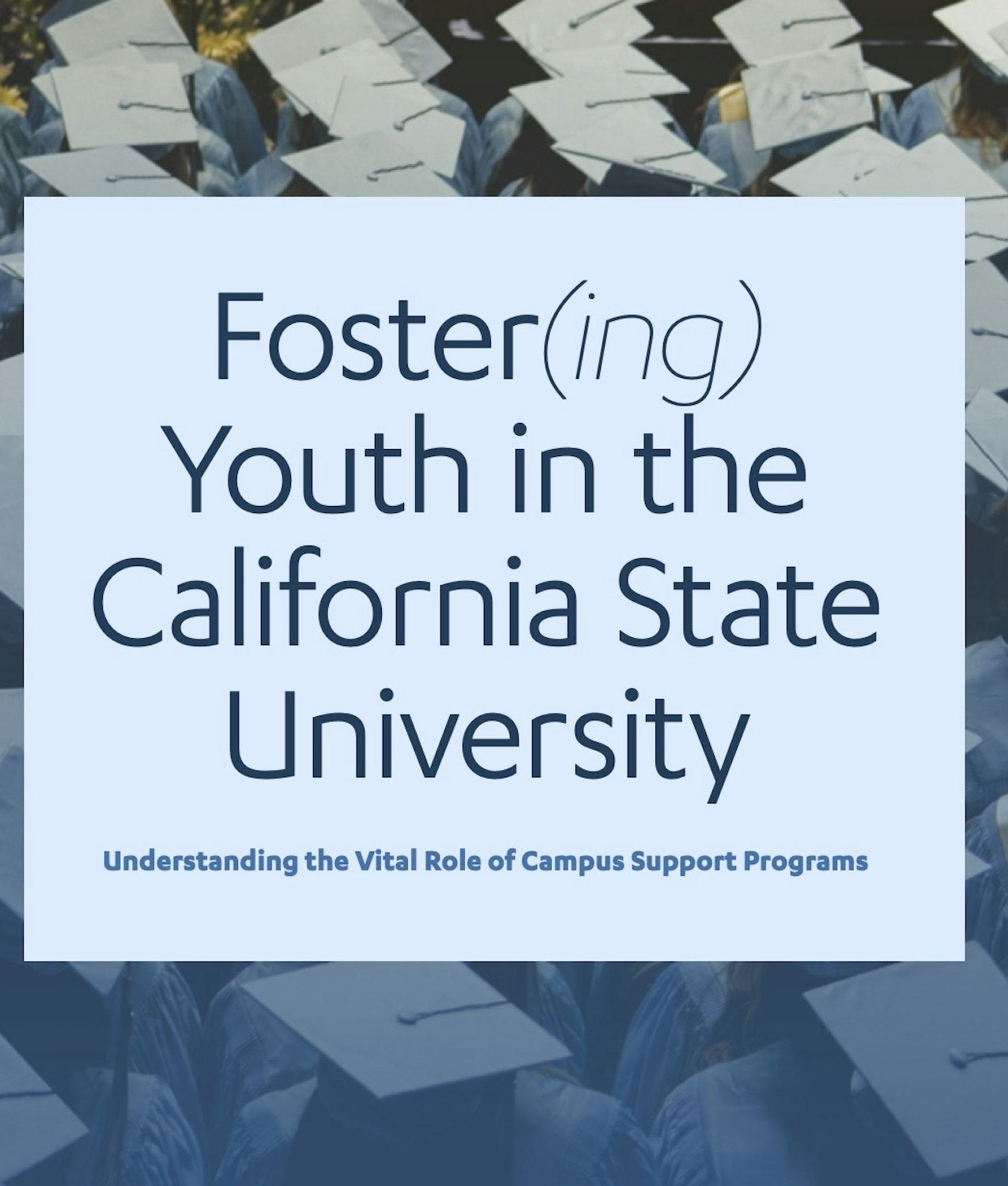Campus programs are critical in providing students with support, a sense of belonging, and a ‘family’ on campus
Young people transitioning from foster care face significant challenges leading up to and during their college experience that compromise their educational success, but a new study published by the UCLA Center for the Transformation of Schools finds that California State University (CSU) campus-based programs are providing critical support for students formerly in foster care.
The study, “Foster(ing) Youth in the California State University: Understanding the Vital Role of Campus Support Programs,” reports on the role CSU campus-based programs play in providing holistic, wraparound supports to help students succeed. These efforts serve as a one-stop shop for meeting students’ needs ranging from admissions, registration, financial aid, counseling, mentoring, crisis intervention, and basic needs. Through the programs, students can access workshops on financial literacy, healthy relationships, mental health, Cal-Fresh enrollment, and leadership principles. Campuses also offer social and cultural programming experiences such as theater and museum visits as well as celebratory events to engage and support students.
The CSU enrolls an estimated 3,000-3,500 students annually who have a foster care history and 22 of 23 campuses have a dedicated program to support foster youth.
To conduct the study, the researchers interviewed and surveyed program support staff from 19 out of 23 CSU campuses. The interview responses highlight the importance of “holistic” and “wrap-around supports” in meeting the needs of students. They also underscore the importance of trust building and relationships between program staff and students, and the use of competent, trauma-informed approaches. Supportive programming, such as pre-college counseling, and strong case management with trained, expert staff are also identified as common practices that further quality and equity in the campus-based programs.
“Research shows that campus support programs are critical in providing students with support, a sense of belonging, and a ‘family’ on campus”, said Kenyon Lee Whitman, an assistant professor at the University of Nevada Las Vegas and a faculty affiliate with UCLA CTS, and lead author of the study. But the study also makes clear youth in foster care face significant barriers and challenges leading up to and during their college experience that compromises their educational success.
Staff interviewed for the study underscored the limited availability of financial aid and the historical underfunding of foster youth support programs as critical challenges to student success. Those interviewed said the financial aid system disadvantages students, and that they faced challenges in assisting students with navigating the complexities of funding their education, particularly for older students and transfer students who may face additional barriers.
The staff interviewed also expressed concerns over a lack of trust and support from campus leadership, fueled by bureaucratic campus policies, administration turnover, and limited opportunities to foster more collaborative partnerships. Many staff also shared anecdotes of the stigmatization of foster students by campus leadership. These issues have contributed to low morale and high staff turnover within campus support programs, and pose a significant challenge in providing stability and consistency for foster students.
“If we are going to meet the needs of these students, we need to make sure that staff members who are providing direct services to foster youth are supported and their expertise and experience are valued,” said Whitman. “We need to take a hard look at our financial aid policies and reform them to be more inclusive of students with foster care experience, as they do not have the same financial support systems as traditional students,” he added.
The researchers hope the study will encourage significant investment in college campus support programs for foster youth, with actionable recommendations at the CSU system, state, and federal levels. The study includes specific recommendations for supporting foster youth practices in the California State University system.
”Foster(ing) Youth in the California State University: Understanding the Vital Role of Campus Support Programs,” is a project of the UCLA Center for the Transformation of Schools. The study was conducted in collaboration with advisers from John Burton Advocates for Youth (JBAY); the California State University (CSU) Chancellor’s Office; and faculty from the University of Nevada, Las Vegas. Funding for the research has been provided by the Stuart Foundation. The full report and executive summary can be found online at https://transformschools.ucla.edu/research/fostering-youth-in-the-california-state-university-understanding-the-vital-role-of-campus-support-programs/.
UCLA CTS is hosting a virtual briefing of the study, including a panel discussion with representatives from the CSU Chancellor’s Office, John Burton Advocates for Youth, and CSU campus support program staff on Wednesday, May 31st from 12:00 -1:00 pm (PST). RSVP at: https://ucla.zoom.us/webinar/register/WN_q4Y6xLFxRyCkoYHzvZaUIA#/registration.
